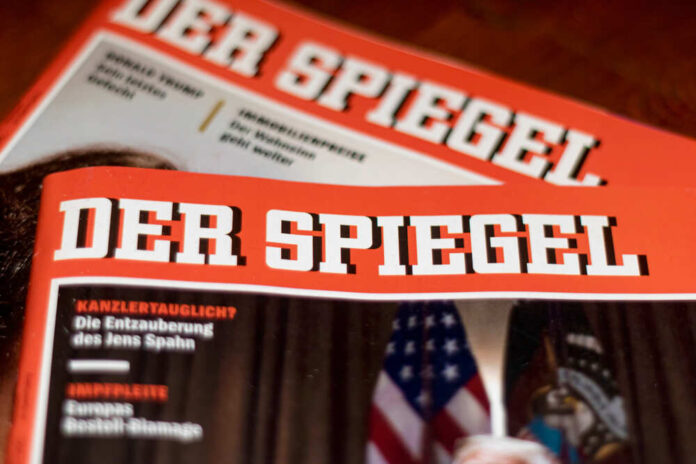
Der SPIEGEL’s Controversial Coverage of Elon Musk and Donald Trump has sparked controversy with its recent coverage of Elon Musk, labeling him “public enemy number 2.”
This designation follows allegations by Musk that the media outlet desires his assassination.
The publication’s provocative reporting style has drawn criticism for its portrayal of both Musk and former U.S. President Donald Trump. Der SPIEGEL’s History of Provocative Reporting Der SPIEGEL has a track record of publishing critical reports about Musk and Trump.
The newspaper has previously depicted Trump in controversial imagery, including portrayals as a terrorist and a figure wearing Ku Klux Klan attire. These provocative covers have included headlines suggesting Trump as a threat, likening him to a comet crashing into Earth.
Criticism of Musk and Accusations of Bias In its coverage of Musk, Der SPIEGEL has branded him as “The Outlaw” and discussed his alleged “Self-Destruction.” This critical stance has led to accusations of bias and sensationalism in the publication’s reporting.
Elon Musk has hit back at German outlet Der Spiegel, who named him ‘Public Enemy No.2’ and accused him of working with Donald Trump, who is ‘probably the current biggest threat to the free world.’ Musk said he is shocked at ‘the level of vitriolic hatred on the left.’ pic.twitter.com/Uz53LKVTRy
— RT (@RT_com) October 22, 2024
Dr. Simon Goddek, a vocal critic of Der SPIEGEL’s approach, has equated the outlet’s reporting to hate speech. “This kind of rhetoric fuels hate and violence and stirs unrest,” stated Dr. Goddek, expressing concern over the potential societal impact of such reporting.
Questions of Funding and Editorial Independence has come under scrutiny due to its financial ties. Reports indicate that the publication has received approximately $5.4 million in grants from the Bill & Melinda Gates Foundation. This funding arrangement has led to speculation about potential influences on the newspaper’s reporting, particularly regarding its stance on figures like Trump and Musk. Critics argue that this financial backing may contribute to a bias in Der SPIEGEL’s coverage, potentially aligning with specific ideological positions or interests.
Elon Musk openly criticized an Op-Ed from German publication Der Spiegel, which names him "Public Enemy No. 2," telling town hall attendees that he's "definitely upgrading" his security.#lawenforcement #newshttps://t.co/wfVohfe8a5
— Blue Lives Matter (@bluelivesmtr) October 23, 2024
Some view the publication as heavily influenced by leftist ideologies and government positions, questioning its role as an independent media outlet.
The controversy surrounding Der SPIEGEL’s reporting extends to broader concerns about press freedom and journalistic integrity. Critics argue that the publication’s approach to covering influential figures like Musk and Trump reflects a larger trend of media bias and sensationalism. This situation has reignited debates about the role of media in shaping public opinion and the responsibility of news outlets to maintain objectivity in their reporting. As the controversy continues, it raises questions about the balance between critical journalism and fair, unbiased reporting in today’s media landscape.














